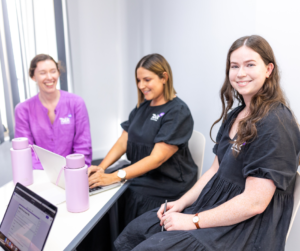How Do Kids Learn to Read?
Learning to read is like weaving a rope with multiple threads, each representing a crucial skill. This concept is beautifully illustrated by the Scarborough Reading Rope, which shows that reading is not a single skill but a combination of several interwoven components. Understanding this can help you better support your child’s reading journey at home. The Scarborough Reading Rope highlights two main strands: word recognition and language comprehension, which together create a strong foundation for reading success.
The Role of Oral Language in Learning to Read
Oral language is one of the first threads in the reading rope. Strong talking and listening skills are essential for learning to read. Before kids can read sentences, they need to be able to say and understand them. Oral language skills develop rapidly in the first five years of life. To set the stage for reading, kids should be able to speak in complete sentences, tell simple stories about their experiences, and understand questions.
Playing with your child is a great way to boost their oral language skills. For example, activities like storytelling or pretend play can help build these crucial skills. Check out our blog on fun ways to build oral language using a dollhouse for more ideas.
Why Phonological Awareness Matters in Learning to Read
Phonological awareness is another key strand in the reading rope. It involves understanding that words are made up of individual sounds. For example, in the word “shop,” the first sound is “sh,” not just the letter ‘s.’ This skill is important because it helps kids learn to break down and sound out new words when reading.
Typically, children first learn to identify the first and last sounds in words. As they become more skilled, they can blend sounds together to form words (e.g., combining b-a-ck to make “back”) and break down words into their individual sounds (e.g., breaking “face” into f-a-ce).
Kids usually develop these skills naturally, but you can help by practicing simple activities, like sounding out their name using sounds, not letters, and tapping each finger on their hand for each sound.
Phonics and Reading: Connecting Letters and Sounds
Phonics is crucial for linking letters and sounds, forming another important thread in the reading rope. Kids need to explicitly learn phonics, as it helps them understand that although a word might sound like “woz,” it’s actually spelled “was.”
Phonics skills develop in stages. Initially, kids might learn that two letters can make one sound, like “sh.” As they progress, they’ll discover that the same sound can be spelled differently in different words, like how “ti” sounds like “sh” in “emotion” or “ci” in “beautician.”
English can be a tricky language with lots of exceptions and variations, but understanding phonics helps kids navigate these challenges.
The Importance of Vocabulary in Reading
Vocabulary is another vital thread in the reading rope. To understand what they’re reading, kids need to know the meanings of words. A strong vocabulary is crucial not only for reading comprehension but also for writing. Kids who struggle with reading might not encounter as many new words as their peers, as they tend to stick to simpler texts.
To build your child’s vocabulary, try expanding on the words they use. For example, if your child says, “It’s yucky!” you could respond with, “Yes, it’s yucky. It’s filthy and dirty. It’s so disgusting, I think we should leave it outside.” This not only validates what they’ve said but also introduces them to new, related words.
For more tips on building vocabulary at home, check out our additional resources here







